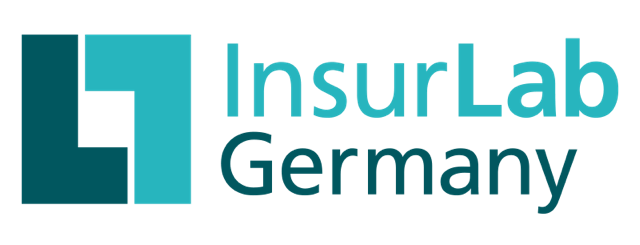At the beginning of the Covid crisis in February, two temporary hospitals were built in the city of Wuhan within a few days. Without BlinkIn, a startup in the current InsurLab batch, it would probably have taken longer. Huber & Ranner, one of BlinkIn's customers, was tasked with installing special ventilation systems in the emergency hospitals- without the ability to send assemblers to the crisis region. Instead, product specialists used BlinkIn's Video Collaboration Platform to guide technicians through the installation on-site from Huber & Ranner's headquarters in Germany.
It is the declared aim of BlinkInTo this end, the company, which was founded in 2018 and is based in Bavaria and Bangalore, has developed an intelligent video conferencing system for customer support. Using technologies such as AR and AI, BlinkIn transports human expertise seamlessly to the exact location where it is needed.
„We build a very focused application", says Josef Sweet, one of the four co-founders of BlinkIn, "we want to give the customer the opportunity to address any issue with an expert as quickly as possible. We add a visual layer to these support calls."Users simply point their smartphone camera at a device or situation they need help with. At the other end, experts can use the live video to understand the situation, check settings in real time and, for example, draw on the customer's screen which buttons to push and which levers to turn. In this way, BlinkIn customer Wilo, one of the leading manufacturers of pump technology, was able to continue its service in lockdown around the globe as part of the critical infrastructure.
With BlinkIn, users don't have to install apps or fill out lengthy registrations when they need help. They simply receive an invitation link from the expert on their smartphone, and the video chat then runs via conventional Internet browsers. Pragmatic, easy to use, and requires no training.
„Our goal is to create impact and value - we're not interested in showcases. But of course we're pushing the boundaries of technology by making video chat even more accessible and intelligent", says Josef. That's one of the reasons why BlinkIn has gained a foothold in other areas besides technical support, such as roadside assistance and insurance, and works closely with companies like ADAC. The basic approach is the same everywhere: Instead of immediately sending an expert to the customer, companies try to understand and solve the problem remotely - at a fraction of the time and cost.
„But we don't want to replace the sales force at all - for most of our customers it is part of their business model„, explains Joseph. Instead, BlinkIn enables a visually supported 'remote-first' service: rapid response to urgent cases, reduction or avoidance of replaceable on-site visits and pre-qualification of the visits that are really needed. "Most insurance claims require more than one on-site visual inspection or visual assessment. Together with our partners, we check whether it is really necessary to carry out both the pre- and post-inspection in person, when the video alternative can be much more efficient and convenient for both parties - and also fraud-proof."
In addition, BlinkIn is working to develop automated support for visual data capture and step-by-step instructions: a Visualbot that enables 24/7 self-service. The application is able to learn from real-world cases solved through human-to-human collaboration on the BlinkIn video platform. Instructions on how to jump-start a car or connect a WiFi router can then be automated via the smartphone.
This innovation has generated additional attention for the start-up from large corporations and investors, who are currently preparing their first round of investment. They are excited about what lies ahead: "We have built amazing partnerships over the last two years and received excellent feedback from the market for various use cases. So we are looking forward to accelerating the development process and being helpful on a larger scale"

